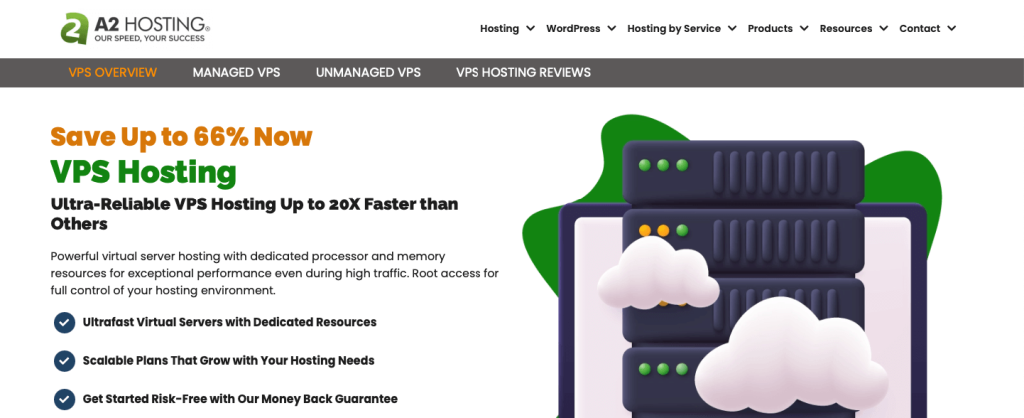Web Hosting and SEO: How Your Hosting Impacts Rankings
When it comes to SEO, most people focus on the usual suspects—keywords, backlinks, meta tags, and content quality. But there’s one factor that often gets overlooked despite being foundational: web hosting. The hosting provider you choose plays a critical role in web hosting and SEO—it affects your site’s performance, uptime, security, and even how search engines crawl your pages.
Think of your host as the engine behind your website. If it’s underpowered, unreliable, or poorly configured, it doesn’t matter how great your content is—you’ll struggle to rank. In this guide, we’ll explore how web hosting and SEO are closely connected and how choosing the best web host for SEO can boost your visibility in search results.
Website Speed and Performance

Speed is more than just a user experience perk—it’s a Google ranking factor. The faster your site loads, the more likely users are to stay, engage, and convert. A sluggish website leads to higher bounce rates, lower average session duration, and ultimately a loss in organic rankings.
Your web host plays a massive role in this. A quality hosting provider will:
- Use modern SSD or NVMe storage, which drastically improves data retrieval speed.
- Minimize latency by leveraging optimized server configurations and up-to-date hardware.
- Offer technologies like LiteSpeed, HTTP/2, and server-level caching to enhance delivery speed.
Google’s Core Web Vitals specifically focus on metrics tied to hosting performance, like Largest Contentful Paint (LCP). If your hosting doesn’t support fast load times, these scores will suffer—even if your design and content are perfectly optimized.
Uptime and Reliability
If your website goes down even for a few minutes, search engines may attempt to crawl and index your site during that time—and fail. Repeated downtime can affect your site’s crawl budget and signal unreliability, leading to lower rankings over time.
From both a user experience and SEO standpoint, repeated outages highlight how fragile the balance between SEO and web hosting can be. A visitor encountering a “This site can’t be reached” error is unlikely to come back, and Google notices those patterns.
That’s why your hosting provider must offer:
- A minimum uptime guarantee of 99.9% (ideally 99.99%+)
- Proactive monitoring and auto-healing infrastructure
- Notifications and real-time response to issues
Some budget hosting providers oversell resources on shared servers, causing performance degradation and even outages during traffic spikes. Investing in reliable hosting ensures your site stays live, accessible, and favorable in the eyes of both users and search engines.
Server Location and SEO Targeting
The physical location of your hosting server can influence SEO—especially if your site targets users in a specific geographic region. While a CDN (Content Delivery Network) can help, the origin server still matters for performance and geotargeting.
Here’s how location affects SEO:
- Latency: A site hosted in Europe will load faster for European users compared to one hosted in the US, reducing bounce rates and improving user satisfaction.
- Crawl efficiency: Google’s bots may experience slower response times if your server is distant, affecting crawl frequency.
- Local relevance: If your target market is regional, a nearby server can subtly reinforce that your site is relevant to those search queries.
Choose a host with global data center options or partnerships with CDNs to ensure low-latency performance wherever your audience is. Geographic performance is another important factor in the broader relationship between web hosting and SEO.
Secure Hosting and HTTPS

HTTPS is now a must-have—not just for security but also for SEO. Google confirmed HTTPS as a ranking signal, and Chrome labels any non-HTTPS site as “Not Secure,” which can scare away visitors and impact click-through rates.
A good host simplifies HTTPS by offering:
- Free SSL certificates (e.g., Let’s Encrypt) as standard, not upsells
- Automatic installation and renewal
- Secure protocols and regular OS patching
More advanced hosts also implement WAFs (Web Application Firewalls), malware scanning, and DDoS protection—all of which protect SEO indirectly by preventing outages and blacklisting.
Search engines prioritize safe environments. Hosting that enables robust security gives both users and Google confidence in your site. Security is a key feature when evaluating the best hosting for SEO, especially when HTTPS is a baseline ranking factor.
Hosting and Mobile SEO
With mobile-first indexing in full effect, the performance of your site on smartphones is just as—if not more—important than on desktop. Hosting affects your ability to serve fast-loading, responsive mobile pages, especially for users on limited or variable connections.
Key mobile SEO aspects influenced by hosting:
- Speed under mobile conditions: Limited 3G/4G networks make a fast host even more critical.
- Server optimization: GZIP compression, browser caching, and content minification should be supported at the server level.
- Mobile resource loading: A good host ensures CSS, images, and JS files are served quickly and consistently.
If your mobile site takes 5 seconds or more to load, over half of users will leave—and Google notices those bounce signals. Your hosting setup should be prepared to serve mobile-first experiences out of the box.
Technical SEO Hosting Features
A hosting provider that supports your SEO strategy should offer more than just basic uptime. These technical features play a big role in how efficiently your site is crawled, indexed, and ranked—and they highlight the practical connection between web hosting and SEO:
.htaccess support
This file allows you to implement redirects, manage URL rewrites, set canonical URLs, restrict bot access, and define caching rules. Without support for .htaccess, you lose control over many essential SEO behaviors on your server.
Server access logs
Access to raw logs lets you analyze bot activity, see crawl frequency, detect crawl errors, and troubleshoot technical SEO issues. This is vital for diagnosing problems that aren’t visible through tools like Search Console.
CDN compatibility
A content delivery network speeds up page loads for global users by caching and delivering your content from edge locations. Hosting that supports easy CDN integration (like Cloudflare or BunnyCDN) helps reduce bounce rates and improves Core Web Vitals.
Caching options
Built-in caching such as LiteSpeed Cache, Varnish, or NGINX fastcgi cache can drastically lower load times. Faster sites get crawled more frequently and perform better in Google’s speed-based ranking signals.
Support for SEO plugins and frameworks
Whether you’re using WordPress SEO plugins like Rank Math or Yoast, or headless CMS setups with structured data deployment, your host should be compatible with these tools and not impose restrictions on performance modules or sitemaps.
You also want a hosting environment that plays well with SEO tools and frameworks. Whether you use WordPress, Joomla, or a headless CMS, make sure your host supports their SEO plugins, structured data, and clean code deployment. This technical layer is where the link between SEO and web hosting has the most tangible impact on rankings and crawl efficiency.
Hosting Types and SEO Impact
Each hosting type affects how well your site can perform, both technically and in search rankings. Here’s how different environments compare:
Shared Hosting
Resources like CPU and memory are shared with many other accounts, which can lead to performance issues, slow load times, and even temporary downtime during traffic spikes. It’s budget-friendly but not ideal for competitive SEO.
VPS Hosting
A virtual private server isolates your environment with guaranteed resources, giving you more consistent performance and control. This is a strong option for websites aiming to scale SEO efforts without paying for a full dedicated server.
Dedicated Hosting
You get full access to the server’s resources, with no competition or interference. This is perfect for enterprise sites, eCommerce stores, or SEO agencies managing mission-critical traffic where stability and speed are non-negotiable.
Cloud Hosting
Built for flexibility and uptime, cloud platforms can automatically scale to meet demand. Many come with built-in load balancing and redundancy, which ensures consistent performance—a key element of maintaining your rankings under varying loads.
Choosing the right type isn’t just about budget—it’s about aligning with your SEO goals. This is why the best web host for SEO is often one that offers VPS or cloud hosting options for better resource control and uptime stability.
Choosing the Right Hosting Provider for SEO
Selecting a hosting provider that actively supports your SEO efforts requires careful consideration of performance, infrastructure, security, and compatibility with SEO tools. Below are several reputable providers known for their SEO-friendly hosting environments:
HostStage (Digital Marketing Leader)

HostStage offers shared, VPS, and dedicated hosting solutions. Their shared hosting plans feature LiteSpeed servers, NVMe SSD storage, free SSL certificates, and a 100% uptime SLA, catering to digital professionals aiming to enhance SEO performance.
A2 Hosting

A2 Hosting is recognized for its Turbo Servers, which provide enhanced performance through features like HTTP/3 support and advanced caching options. These capabilities contribute to faster load times and improved SEO metrics.
SiteGround

SiteGround’s managed WordPress hosting leverages Google Cloud infrastructure, offering built-in caching and robust uptime. Their services are designed to be user-friendly, making them suitable for those seeking reliable SEO performance.
InMotion Hosting

InMotion Hosting offers VPS plans equipped with NVMe SSD storage, custom caching, and free SSL certificates. These features are particularly beneficial for websites that prioritize speed and control to support SEO strategies.
When evaluating hosting providers, it’s essential to look beyond pricing. The best hosting for SEO should deliver on speed, security, uptime, and flexibility, ensuring that your technical SEO efforts are effectively supported. Look for a provider that offers these fundamentals consistently, without locking essential features behind premium tiers.
Final Words
If your SEO game is strong but your rankings are still lagging, the issue might not be your content—it could be your hosting. Hosting directly affects how search engines crawl, index, and evaluate your site. From speed and uptime to security and mobile responsiveness, it all starts at the server level.
Choosing a hosting provider with SEO in mind is one of the smartest long-term decisions you can make for your site’s growth. Great content needs a great platform—and the right host is that foundation.
Power Your Rankings with HostStage
At HostStage, we know that SEO isn’t just about content—it’s about the performance and reliability of your hosting. That’s why we recommend our Internet Marketing Shared Hosting Plan for site owners serious about climbing search engine rankings.
With 20 GB of NVMe SSD storage, 10 GB of RAM, cPanel + WHM, and LiteSpeed-powered performance, this plan delivers the speed, uptime, and stability that both users and search engines demand. You’ll also benefit from free SSL certificates and full domain management, all starting at just $9.95 per month.
If you’re ready to build an SEO-friendly site on a powerful and secure platform, the Internet Marketing Plan at HostStage is the way to go.




